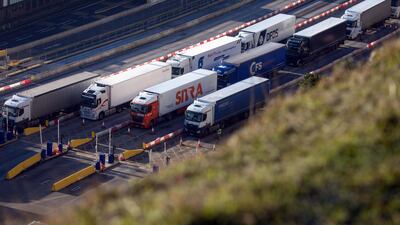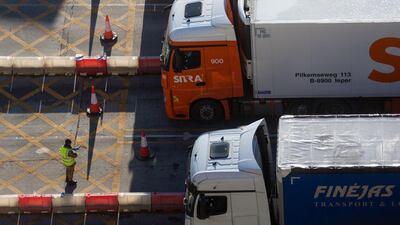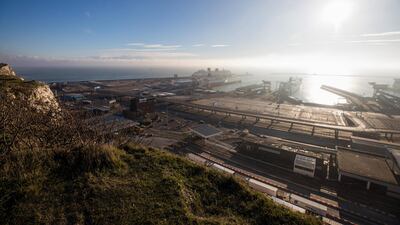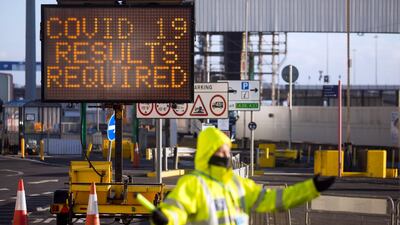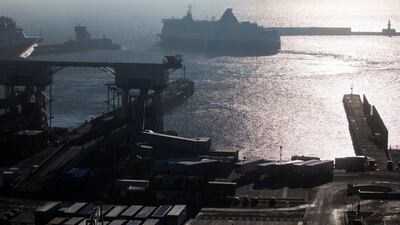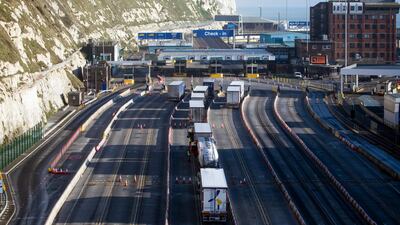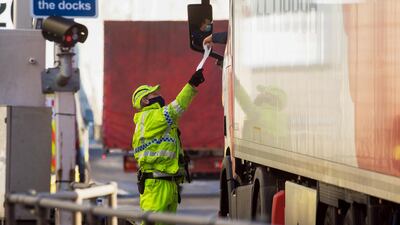EuroTunnel operators have promised Channel crossings 'will work well' on New Year's Day when new Brexit trade rules come into force, despite warnings from hauliers and ministers of potential disruption.
The new rules from Britain's EU trade deal will start at 11pm on New Year's Eve in the UK, midnight in Brussels, after a landmark trade deal was struck on Christmas Eve and approved on Wednesday by Parliament.
Despite concerns of chaos at the border, following on from the Kent lorry crisis over Christmas caused by alarm over the mutant strain of coronavirus, John Keefe, director of Getlink, said he was 'confident that it will work well on 1 January'.
“Things will start slowly,” he said. “January 1 will be a quiet Bank Holiday after New Year’s Eve. I don’t think traffic will build up until late in the first or second week of January. This initial quiet period will allow everyone to prepare.”
While the trade agreement maintains zero-tariff and zero-quota access between Britain and its biggest trading partner, there will be new customs formalities and paperwork for hauliers from the UK taking goods to the EU and Northern Ireland.
Dover remains the UK’s most important link with the EU, the country’s biggest trade partner; however, the amount of tonnage has declined by 14 per cent since the Brexit vote in 2016, according to Department for Transport data. Other ports have gained business since then with Liverpool’s traffic growing 7.6 per cent and London Medway surging 43 per cent.
The government urged hauliers without the correct documentation to delay their journey until the paperwork was in place otherwise they would be stopped and their goods held causing delays.
Michael Gove, the Cabinet minister in charge of Brexit preparations, said earlier this week that Britain's businesses a face a "bumpy" post-Brexit period as they adapt to new EU regulations.
The Road Haulage Association also warned that customs formalities and regulatory checks mean there is likely to be “teething problems” at the border.
Duncan Buchanan, policy director of the Road Haulage Association issued a tweet on Thursday urging its members to be prepared.
“Kent Access Permit goes live at midnight,” he wrote. “All HGV's +7.5t leaving UK via Dover or Channel Tunnel will need a permit. Fines can be issued.”
Rob Holliman, director of Essex-based haulage firm Youngs Transportation and Logistics said the biggest concern is how long the export customs clearance will take for trucks with cargo on board exiting the EU and then entering the UK.
“Time is indeed money when you are running trucks and our whole pricing structure going backwards and forwards to Belgium ... is based on how many trips we can get in one week.
“So if the delays are sufficient for us to do less trips per week, then our costs for that week will have to go up. And if our costs go up then so will our sales … which will we have to pass on to our customs which ultimately means you and I will pay more for that in our supermarket.”
Mr Holliman said he would not run any of its lorries in the first week to ensure none of his vehicles are delayed.
“We’re not sending anything the week commencing January 4. That way, it gives the country time to get used to all these new systems ... and then we can hopefully resolve any issues in advance of sending any trucks.”
French truckers have also warned that red tape, new "smart borders" that don't talk to one another and ill-prepared traders could cause border chaos.
Sebastien Rivera, head of the National Federation of Road Hauliers in the northern Hauts-de-France region, home to the port of Calais and Eurotunnel terminal, said on Wednesday that disruption is inevitable,
"If you listen to the French and British authorities, the talk is of smart borders and full readiness, but that doesn't stop us having doubts," Mr Rivera said.
"It will be a real headache. Some companies will be ready, others won't. It's a major change of habits that lies ahead."
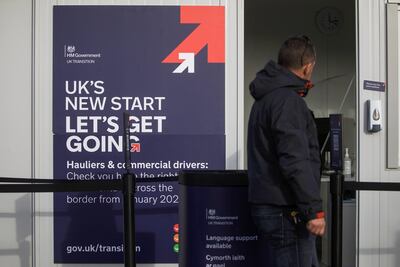
Companies were already stockpiling and exploring alternatives to the crowded truck-ferry route across the English Channel when France unexpectedly closed its border for two days last week, citing the spread of the Covid-19 mutant strain in the UK. The disruption caused huge queues at the Port of Dover.
In response, logistics firms have looked to relieve pressure on lorry traffic, stepping up airfreight, container ferry and air-cargo shipments. With the New Year arriving on a long weekend, concerns of an immediate repeat of last week’s chaotic scenes have diminished.
“It should be quiet for at least the first few days,” said Richard Ballantyne, who heads the British Ports Association. “If there are blips of people turning up without the correct documentation, if it’s going to happen at any time, it’s better to be then.”
Mr Rivera said it was inevitable not all businesses would be ready to navigate the raft of paperwork, including customs and safety declarations, and the IT systems.
"Our worry is what happens when we return to 'normal business' in mid-January," he said.
While Britain will phase in full customs formalities over six months, EU states are imposing them immediately.
French customs, for example, have employed an extra 700 agents to deal with the post-Brexit trade rules with almost half of them will be based at Calais' port and Eurotunnel terminal.
